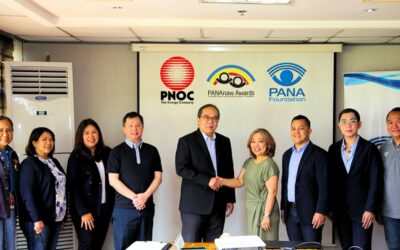
You know you’re Pinoy if, well, many things distinguish us as Filipino people – like bringing homepasalubong from a trip, devotion to family or enthusiasm (some would say overenthusiasm) for picture taking.
Stereotypes aside, we are what we are because Filipinos share a core value of kapwa.
“Pinoy na Pinoy ang pakikisama at pakikipagkapwa,” says Prof. de Leon.
It is so Pinoy that it’s tricky to translate the word “kapwa” into another language. The closest ideas of kapwa in English would be our fellow human being or our neighbor.
Filipinos express three main value-orientations inspired by our core value, Prof. de Leon shares: Filipinos love to connect, Filipinos like to experience the multidimensional wholeness of life and Filipinos are highly participatory.
We love taking pictures and including everyone in the shot because it helps us connect with people. The same way we find connection in eating together, or working, traveling, celebrating and praying together.
“Among the most highly relational in the world, Filipinos are hardly alone,” says Prof. de Leon.
“Filipinos – at their best – are highly nurturing, caring, sharing people, with a strong maternal orientation.”

In the professional world, Filipino women in senior management lead the world average of women in top business positions.
Both men and women’s work are valued, because “we do not like to belong to only one side of a relationship,” Prof. de Leon explains.
“Filipinos do not like a partial, fragmented view of life. They like to see life as a whole.”
Even in planning our families, we hope to raise at least one boy and one girl.
Everybody has an active role, no matter how small, hence the term “salimpusa”. Our highly participatory culture valuespagbibigayan, sharing, interdependence and equitable distribution of resources.
“Filipinos demand collective, equal participation in the creative process, decision-making and self-determination,” Prof. de Leon says.
“Thus, Filipinos prefer consensus as a mode of reaching decisions or settling conflicts.”
Other cultures may easily identify Filipinos by the things we do. We bring so many luggage stuffed with pasalubong in airports. We eat in packs. We take endless pictures.
We know we’re Filipino because we value kapwa.
[nggallery id=9]



